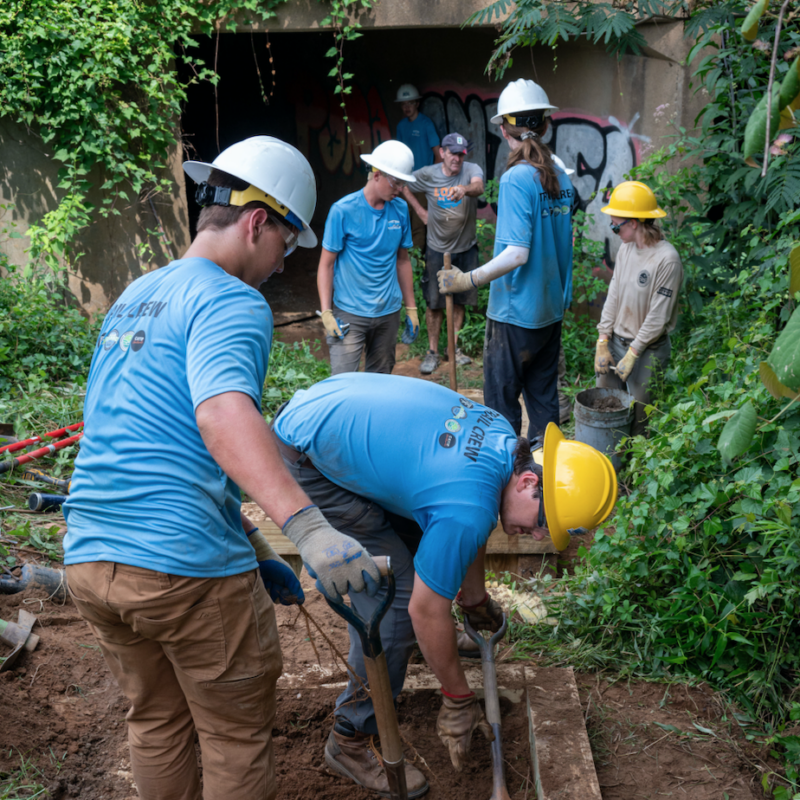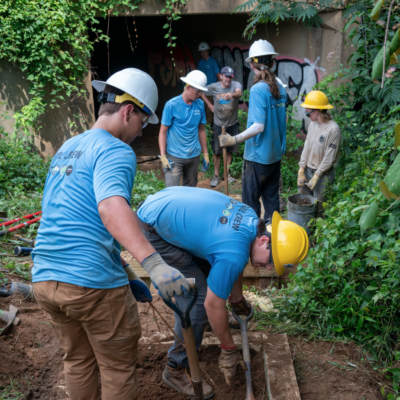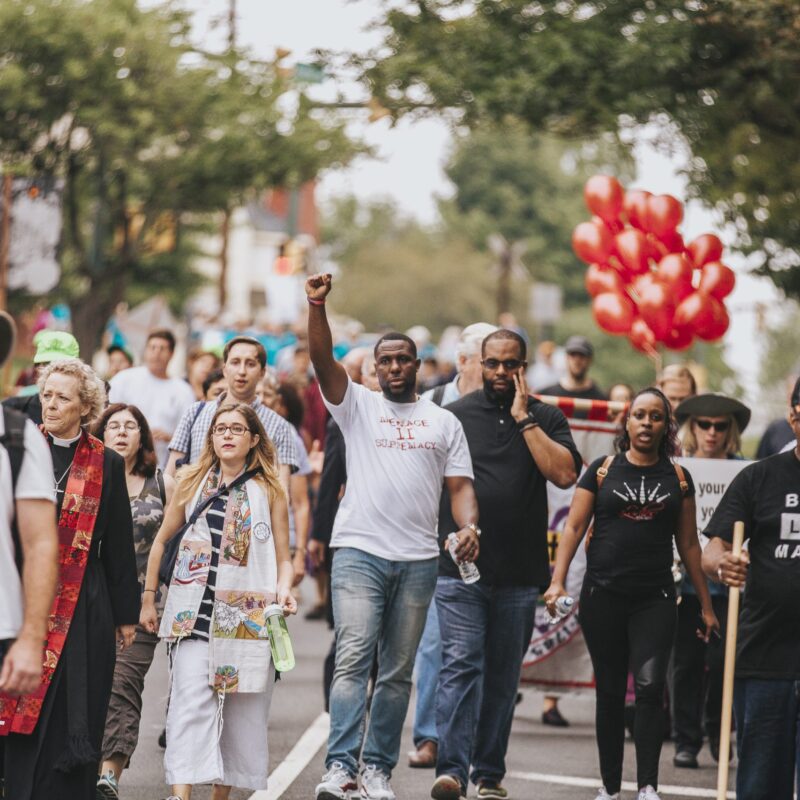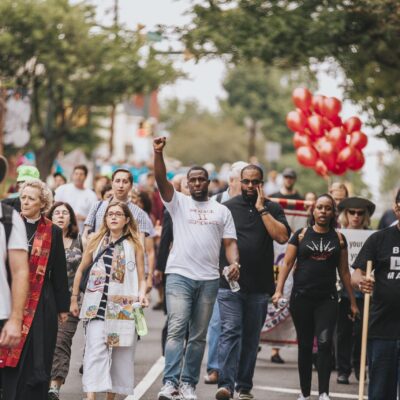For decades, Betty Pittman was a U.S. history teacher at Lane and Charlottesville high schools. “My mother taught half of Charlottesville,” says her daughter, Cookie Ferrier. But when Pittman was dying, of pancreatic cancer, no one was allowed to visit.
While the casualties from COVID-19 continue to mount, the virus is changing even the way those who aren’t infected are experiencing death, says Ron Cottrell, CEO of Hospice of the Piedmont. The hospice guides patients and their loved ones through death and mourning, and now they’re helping Ferrier’s family through a journey that has taken on unexpected contours.
Because of coronavirus precautions, Ferrier’s father, who lives in a nursing home, wasn’t able to leave to be with his wife when she died. And Ferrier was able to make only a brief visit to him—negotiated by the hospice—on the day of her mom’s death.
“I couldn’t touch him,” Ferrier says. “I couldn’t hug him… He wasn’t able to be present with my mom in her passing.”
Hospice of the Piedmont, which provides pain relief and emotional support for patients with a terminal diagnosis, regularly serves around 300 patients at a time. Except for 10 ICU beds and eight beds in their downtown hospice house, all of that care is delivered in the patients’ places of residence. That delivery of service is complicated by the stay-at-home situation. Cottrell says the organization has been doing as much business as possible online.
“We’re trying to stay connected with the patients and the families via Zoom,” Cottrell says. “We can have very good conversations. That doesn’t replace the physical visits, but [physical visits] are less frequent.”
Ferrier feels that the hospice team “went above and beyond” to keep her and her mother as calm as possible, even as a global pandemic broke out.
“They didn’t stop and they didn’t spread the fear either,” says Ferrier. “They taught us how to maneuver the journey during this crisis.”
Hospice workers taught Ferrier practical skills, like how to properly wear masks and sanitize. But they also taught her what to expect after her mother’s death.
“They got me ready for mourning in isolation,” Ferrier says.
Teresa Haase is the director of bereavement and supportive care services at the hospice—her team works with patients’ family members for up to a year after death. But everything they do—individual counseling, group therapy sessions, youth grief camps—has been moved to telephone.
“In some ways, [the virus] is exacerbating grief,” Haase says. “We’re wired for connection and relationship. Mourning goes better when we can mourn with others, and when others can witness and walk with us in our grief.”
Certainly, Ferrier has mourned her mother in a way that’s not typical for her family. “We’re United Methodists, and one thing that Methodists are known for is casseroles,” says Ferrier. “Casseroles and potlucks. So one of the things that my church does, when someone passes, is we cook for you. We bring food to you.”
There are no potlucks in the age of social distancing—so Ferrier has looked inward, instead. And she’s found solace.
“I’m Cherokee Indian,” she says. “My ancestors were Native Americans. And the Native American way for the elderly was to walk off by themselves and pass. It doesn’t mean your loved one was not loved by you, if you’re not present when they pass.”
She’s also clung closer to those who are still here. Ferrier still can’t be with her father, but, she says, “I can FaceTime him. And I make sure whenever I do that I’m always saying, ‘Daddy I love you.’ And he goes, ‘I love you too.’ I never let a moment pass that I don’t tell him.”
Haase, the bereavement counselor, is a professional when it comes to talking about death—something we’re all doing a little more often now, as we brace ourselves for each day’s bad news. She advises that everyone follow Ferrier’s lead.
“We’re all experiencing loss at so many different levels,” Haase says, “not to mention this awareness of death. What is important is that we take stock of what is important in our lives—we love the people that are around us, we tell them that, we make amends when [we] can.”
The virus crisis has offered a striking reminder that life is short and unpredictable.
“When I started here, what I learned, there are these five things to say before someone dies,” says Haase. “They are: thank you, please forgive me, I forgive you, I love you, and goodbye. And I thought they were so profound. What if we did that every day? It would be so profound.”





